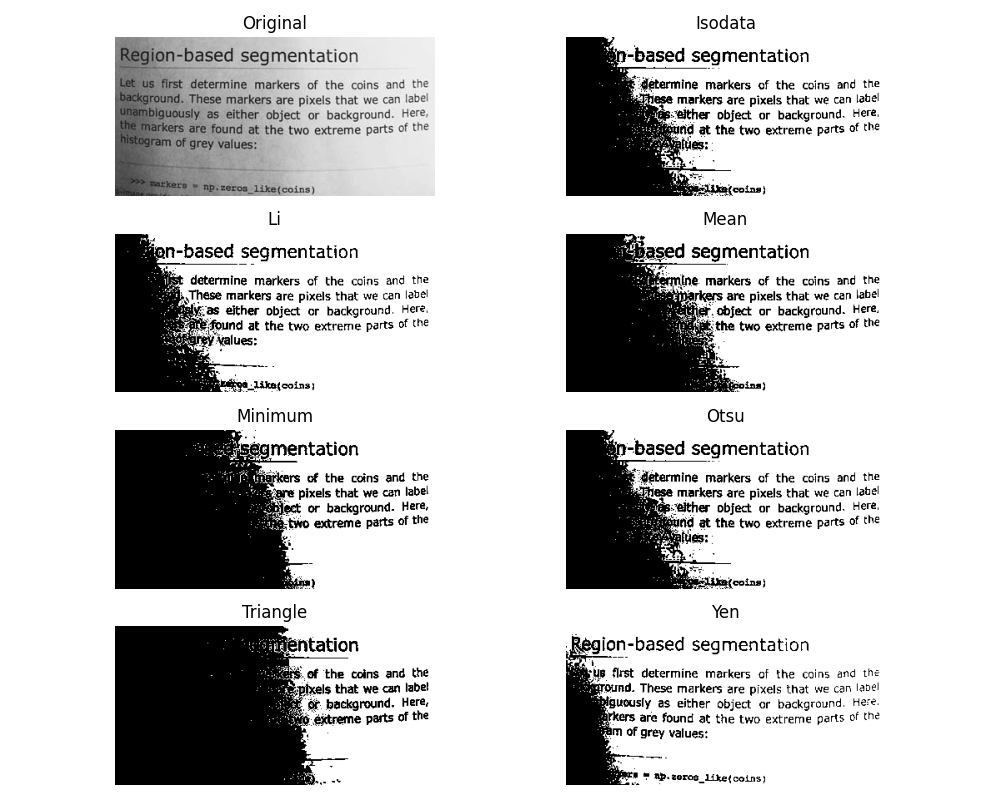备注
前往末尾 下载完整示例代码。或者通过 Binder 在浏览器中运行此示例。
阈值化#
阈值化用于从灰度图像创建二值图像 [1]。
参见
关于 阈值化 的更全面的介绍
import matplotlib.pyplot as plt
from skimage import data
from skimage.filters import threshold_otsu
我们演示如何应用这些阈值算法中的一种。Otsu 方法 [2] 通过最大化两个像素类之间的方差来计算一个“最优”阈值(在下方的直方图中用红线标记),这两个像素类由阈值分隔。等效地,该阈值最小化了类内方差。
image = data.camera()
thresh = threshold_otsu(image)
binary = image > thresh
fig, axes = plt.subplots(ncols=3, figsize=(8, 2.5))
ax = axes.ravel()
ax[0] = plt.subplot(1, 3, 1)
ax[1] = plt.subplot(1, 3, 2)
ax[2] = plt.subplot(1, 3, 3, sharex=ax[0], sharey=ax[0])
ax[0].imshow(image, cmap=plt.cm.gray)
ax[0].set_title('Original')
ax[0].axis('off')
ax[1].hist(image.ravel(), bins=256)
ax[1].set_title('Histogram')
ax[1].axvline(thresh, color='r')
ax[2].imshow(binary, cmap=plt.cm.gray)
ax[2].set_title('Thresholded')
ax[2].axis('off')
plt.show()

如果你不熟悉不同算法的细节及其基础假设,通常很难知道哪种算法会给出最佳结果。因此,Scikit-image 包含一个函数来评估库提供的阈值算法。一眼望去,你就可以为你的数据选择最佳算法,而无需深入了解其机制。
from skimage.filters import try_all_threshold
img = data.page()
fig, ax = try_all_threshold(img, figsize=(10, 8), verbose=False)
plt.show()

脚本总运行时间: (0 分钟 0.385 秒)
